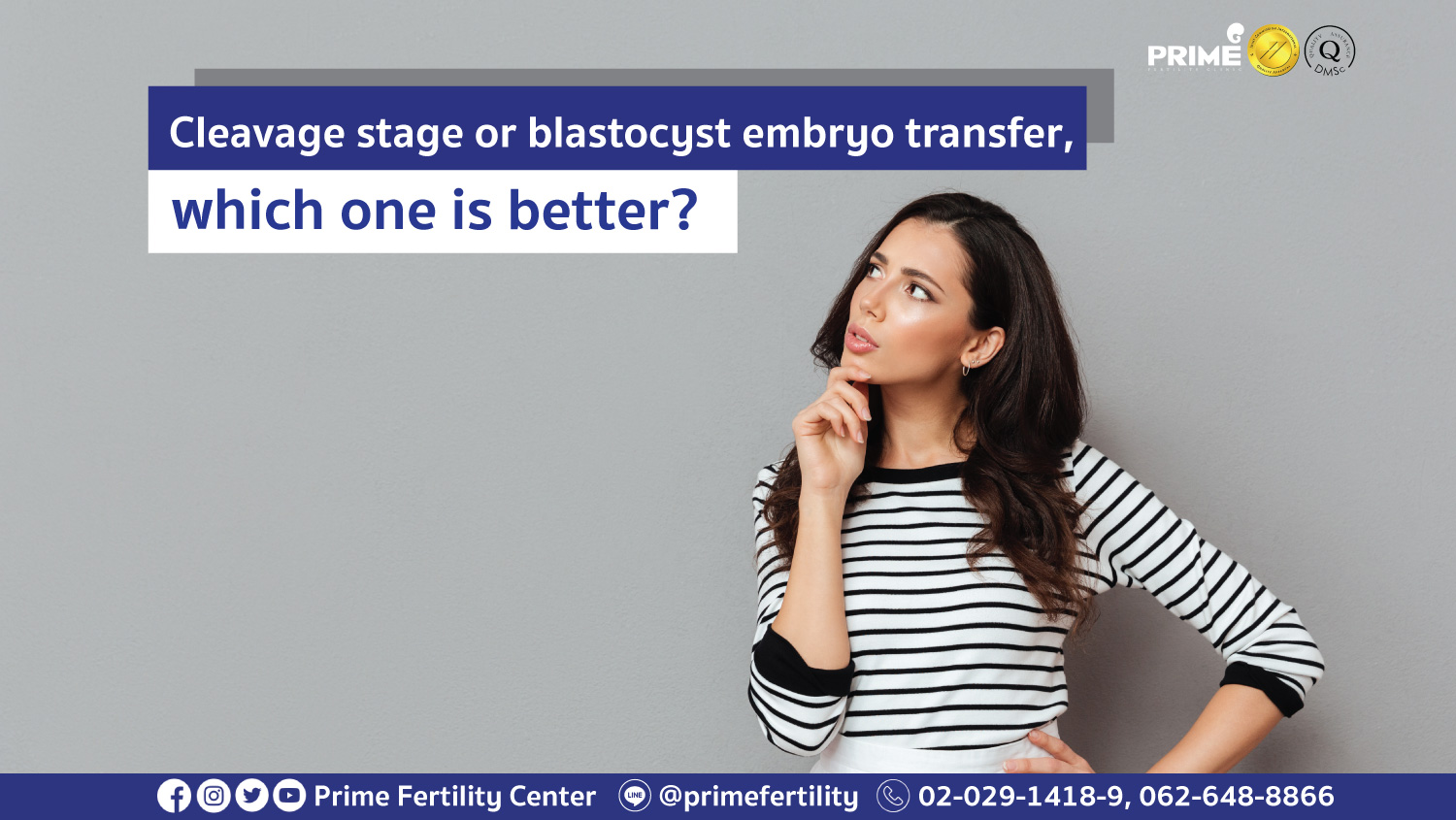Generally, there are 2 stages of embryo development that are mostly used to perform embryo transfer; cleavage or blastocyst stage. Both stages are providing different advantages.
Embryos in blastocyst stage have some benefits about their physical characteristics which are more suitable for implantation. But during the cleavage stage, an embryo is still remaining inside a fallopian tube and may not ready for implantation until the embryo reaches the blastocyst stage. Furthermore, it is possible that embryos in cleavage stage may stop growing before implantation.
Therefore, blastocyst embryo transfer is quite more favorable than cleavage-stage transfer. Particularly, culturing embryos to the blastocyst stage is like a natural selection. Or doing embryo biopsy for genetic testing in order to select the healthy embryo then transferring back to the uterine cavity and allowing the embryo to grow up to be the fetus respectively.
However, the cleavage-stage transfer may be used in some patients who have limitation about the in vitro embryo culture or embryos with little opportunity to reach the blastocyst stage. A specialized doctor will consider to perform the embryo transfer during this stage rather than wait for the next stage that the embryo may stop developing. On this matter, the embryologist will need to concern about how well the embryo would grow and how the quality would be.
Reference: Prime Fertility Center Co., Ltd.

